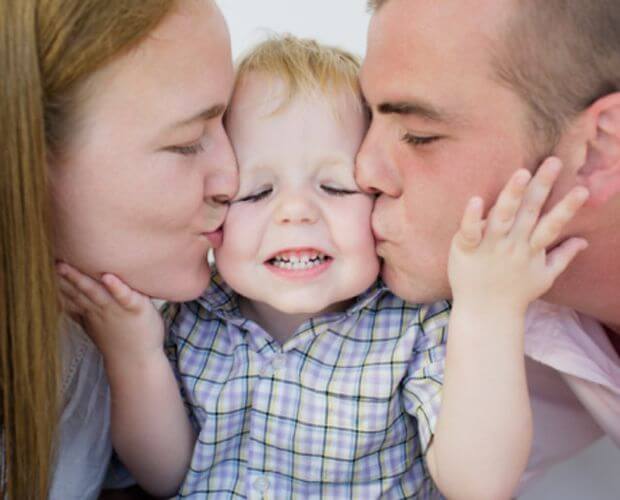Getting Ready for Raising Children: a Checklist

As every parent knows, there is no manual for raising children. However, there are ways to prepare for this momentous task.
For many parents, getting ready for raising children means buying every gadget or parenting book that promises to make their new life easier.
All parents have one thing in common, however: they make mistakes.
Raising children is a challenge, and parents need to be up to the task. This is not easy.
Being ready to raise children means acquiring the right tools and knowledge, as well as products. It also involves a process of mental preparation.
There are things that prospective parents can begin working on long in advance.
These include patience and the ability to stay calm. These two key ingredients will help everything else fall into place once your baby arrives.
Take shopping for baby supplies, for example: by staying calm, we’re able to choose wisely. Patience is vital to picking out the right items.
Being ready for raising children isn’t just about what you go out and buy at the store. But there are products that can help you get ready for a new baby.
Here are some ways that you can begin prepare yourself for raising children:
Getting ready for raising children
Take parenting classes

Being a good parent isn’t something you can learn from a book. No course is long or detailed enough to fully prepare a new mom or dad for all of the situations they may encounter.
Every child is different (and every parent, too). Textbooks can’t cover everything. In fact, many parents will go on to forget much of what they learn at prenatal classes.
Even so, there are many programs available to give parents a head start. Hospitals, churches and charities all offer pre-natal classes.
A parent is not somebody who gives life. That would be too easy. A parent is somebody who gives love.
-Dennis Lord-
One of the most helpful pieces of advice that these programs may offer are strategies to deal with the conflicts that arise as part of raising a family.
At the same time, specialized counsellors may be able to help new parents improve certain aspects of their character and control damaging emotions.
What’s more, basic knowledge about how to care for a newborn baby helps parents feel more ready for raising children.
We all know that, when it comes to children, what is true in theory may not work in practice.
But parenting classes can give us an idea of how to manage certain situations as a family, and provide basic tips on care and discipline.
Buy the basics

It is easy to go overboard. When it comes to buying products for their baby, many parents throw caution to the wind.
First-time moms and dads, in particular, may be dazzled by the infinite variety of baby products on offer.
Buying baby essentials is not something that you should leave off your checklist altogether, however. Part of being ready for raising children is having the basic products that they’ll need.
But be careful – not all of what is advertised as essential really is.
When you bring your new baby home, you’ll need clean cotton clothes and blankets.
The quantity may vary, but these items are essential for your newborn. Other things to buy include:
- Enough diapers for the first few weeks. It isn’t a good idea to buy too many diapers in a newborn size, however, since your baby will soon outgrow them. The medium size will get far more use.
- It is important to have lotion for diaper rash, baby powder and wet-wipes on hand for cleanup.
- A crib or moses basket. Even if you’re planning to co-sleep with your baby, they’ll need a place that is just for them. Remember that it isn’t safe to leave your baby in your bed unattended. During the day, newborns should sleep in a crib. This also gives you a safe place to leave your baby while you get on with other things.
- If you aren’t planning to breastfeed, you’ll need bottles. However, you may not be able to purchase formula until you’ve spoken to your doctor.
- A carseat.
First aid
Along with the basics of good parenting, it’s also a good idea to learn some first aid techniques. For example, it’s important for parents to know how to apply CPR to babies.
Have some medical supplies on hand to deal with fevers and other mild symptoms that can be treated at home. Your first aid kit could also include a nasal spray and nail care tools for your baby.
All cited sources were thoroughly reviewed by our team to ensure their quality, reliability, currency, and validity. The bibliography of this article was considered reliable and of academic or scientific accuracy.
- Escrivá, M. V. M., García, P. S., Porcar, A. M. T., & Díez, I. (2001). Estilos de crianza y desarrollo prosocial de los hijos. Revista de psicología general y aplicada: Revista de la Federación Española de Asociaciones de Psicología, 54(4), 691-703. https://dialnet.unirioja.es/descarga/articulo/2364995.pdf
- Rangel, J. V. (2003). Estilos de crianza, estilos educativos y socialización:¿ Fuentes de bienestar psicológico?. Acción pedagógica, 12(1), 48-55. https://dialnet.unirioja.es/servlet/articulo?codigo=2972859
- Jorge, E., & González, M. C. (2017). Estilos de crianza parental: una revisión teórica. Informes Psicológicos, 17(2), 39-66. https://dialnet.unirioja.es/servlet/articulo?codigo=7044268
- Mestre, M. V., Tur, A. M., Samper, P., Nácher, M. J., & Cortés, M. T. (2007). Estilos de crianza en la adolescencia y su relación con el comportamiento prosocial. Revista latinoamericana de psicología, 39(2), 211-225. https://www.redalyc.org/pdf/805/80539201.pdf
- Rojas, M. (2015). Felicidad y estilos de crianza parental. Documento de Trabajo). México: Centro de Estudios Espinosa Yglesias. https://ceey.org.mx/wp-content/uploads/2018/06/16-Rojas-2015.pdf
This text is provided for informational purposes only and does not replace consultation with a professional. If in doubt, consult your specialist.








